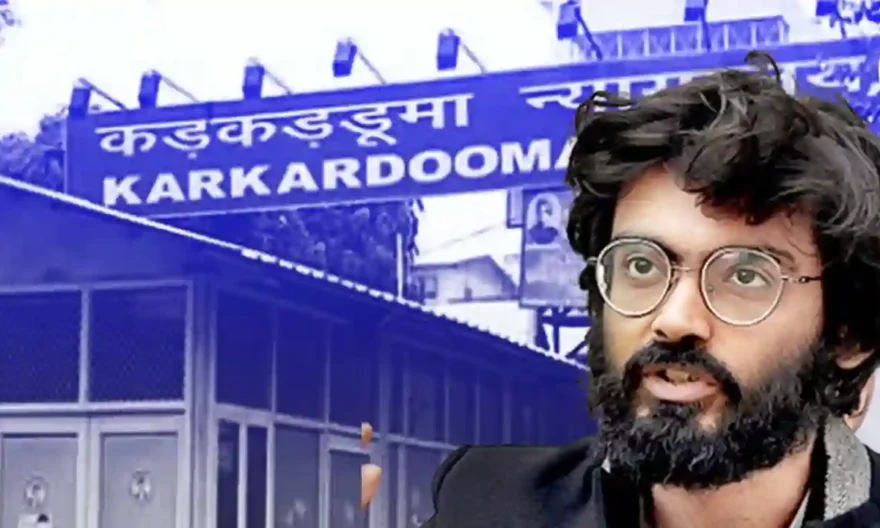
Delhi’s Karkardooma Court has issued a notice to the Delhi Police on a plea filed by Sharjeel Imam, seeking statutory bail in a sedition case registered in 2020.
Additional Sessions Judge (ASJ) Amitabh Rawat of the Karkardooma Court has issued a notice to the Delhi Police and directed them to respond. Special Public Prosecutor (SPP) Amit Prasad acknowledged the notice and requested time to file a reply regarding the admissibility of the bail application. The court has scheduled a hearing for September 11.
Sharjeel Imam in his plea states that the matter pertains to the offense of sedition, and the maximum penalty for offenses under the Unlawful Activities (Prevention) Act (UAPA) is 7 years. The applicant has been in custody since January 2020, which amounts to half of the maximum punishment for the UAPA offense.
The argument put forth is that the applicant has been in custody since January 28, 2020, in connection with this case, and has completed a period exceeding 3 years and six months in incarceration, which constitutes half of the maximum imprisonment period specified by law.
Advocates Ahmad Ibrahim and Talib Mustafa, representing Sharjeel Imam, have filed an application seeking his immediate release from the ongoing criminal prosecution based on the provisions of Section 436A of the Code of Criminal Procedure (Cr.P.C.).
Furthermore, the plea states that the applicant was arrested from his hometown Jehanabad, Bihar, on January 28, 2020, and was produced before the Patiala House Court. Since then, he has been in judicial custody following police interrogation.
The investigation in the matter has concluded, and a final report/chargesheet against the applicant was filed on July 25, 2020. This report pertains to offenses under Sections 124A, 153A, 153B, 505 of the Indian Penal Code (IPC), and Section 13 of the UAPA.
The court took cognizance of the speeches and offenses under Sections 124A, 153A, 153B, and 505 IPC on July 29, 2020, and Section 13 of the UAPA on December 19, 2020.
Charges were formally framed against the applicant on March 15, 2022, by the court under Sections 124A, 153A, 153B, and 505 IPC. The court issued an order effectively staying the operation of Section 124A IPC and all related proceedings. The Delhi High Court, on October 31, 2022, directed a stay of the trial concerning material witnesses, allowing only formal witnesses to be examined.
The plea further said that Section 436A of the Cr.P.C. is a comprehensive and beneficial provision designed to enforce the right to a speedy trial guaranteed by Article 21 of the Constitution.
Also, the plea points out that due to the stay of trial in the offense of Section 124A IPC (sedition) by the High Court, as per directions issued by the Supreme Court in S.G Vombatkere v. Union of India on May 11, 2022, the remaining offenses against the applicant pertain to Section 153A IPC (promoting enmity between different groups), punishable by up to 5 years of imprisonment; Section 153B IPC (imputations, assertions prejudicial to national integration), also punishable by up to 5 years of imprisonment; Section 505 IPC (statements conducing to public mischief), punishable by up to 5 years of imprisonment; and Section 13 of the UAPA (punishment for unlawful activities), punishable by up to 7 years of imprisonment.
The plea contends that even considering the maximum 7-year punishment prescribed under Section 13 of the UAPA, the applicant has already served half of the maximum imprisonment period specified by law for the relevant offense.




